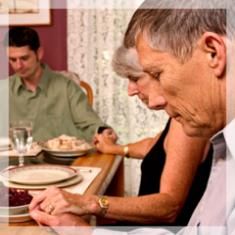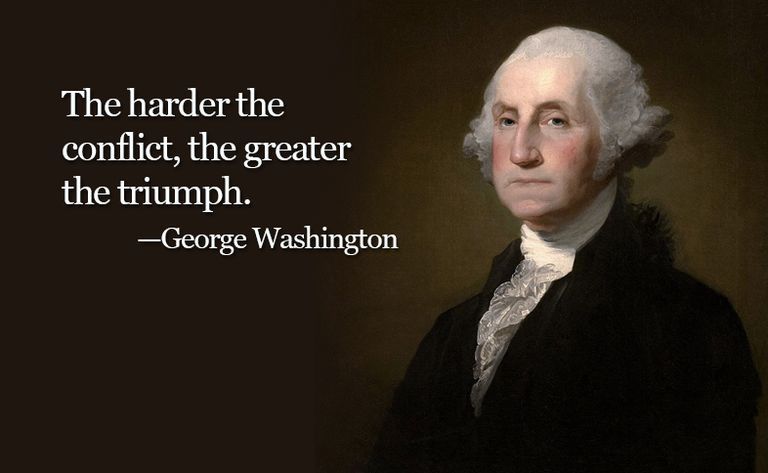One of the greatest American philosophers of all time was Henry David Thoreau.
The thing that distinguishes Thoreau is that he was an original thinker. And one of the wise things he said was that all of us ought to give thanks at least once every day for the fact that we were born. Thoreau said that he did this himself.
Now I’ve heard some people say that they wished they hadn’t been born; but they don’t really mean it. They’re only reacting to difficulty in their lives.
Stop for a moment and think what you would have missed had you never been born. You would have missed feeling rain on your face, the crunch of snow beneath your feet, the warmth of a fire on a winter evening.
If you had never been born, you would never have felt a hand in yours on a moonlit night in June. And you never would have had a tough problem to struggle with—nor had the thrill of coming up with a solution.
Are we not moved to give thanks for all the wonderful things that are constantly around us? We Americans have such an overabundance of technical wizardry that we have long since forgotten the simple blessings of this life.
I’ve been to Japan twice and found that they have many remarkable customs.
For example, the Japanese will at times have what they call a wood-burning party. What’s a wood burning party? Well, they take several different kinds of wood and burn them one after another in a brazier (which is a high-class word for a little stove). The idea is to sit around and savor the aroma of the wood. As each of the different woods is burned, someone will tell the gathered guests: “This wood came from the high mountains. This wood has struggled with the elements; it has had to fight to live.” And you sense those qualities in the aroma. About another piece, someone might say, “This wood came from the seashore where it was cleaned each day by the ocean spray.” And you get the freshness of sea air in the aroma of the burning wood.
Can you imagine a group of Americans sitting around smelling wood at a party? And yet when you’re outside on a winter night and there’s a smoke coming from a neighbor’s fireplace chimney, the aroma of the wood can return you to your childhood, take you back to some deep elemental life experience.
Another Japanese custom is to have what they call a snow-viewing party. This is usually held on a night when the moon is full, by somebody who has a large picture window with a beautiful Japanese garden outside. The guests gather. There are no cocktails, there is no social chatter. You simply sit and look through the picture window at the stark, bare trees with little flicks of snow on them, at the great rocks topped with snow, at the snowy ground.
You spend an hour or two in silence, viewing the snow and thinking and meditating. Then you rise and you bow, as the Japanese do, and you go home. That’s all. But you have had an hour of quiet fellowship with sensitive, appreciative people. Life is good; and you walk away thinking long thoughts about how lovely the world is.
Once when I was in New Jersey on my way home to New York City, I saw an Erie Railroad train going out and I was reminded of an incident that took place many years ago. It was a wild, stormy wintry night. The Erie Railroad train from upstate was leaving Meadville. I was sitting in the club car talking with a gentleman with whom I had struck up a conversation. He asked, “Where are you headed tonight?”
“I am getting off at Hornell,” I replied. “My mother and father live over at Canisteo, three miles away. I’m going to spend the night with them.”
The man sat silent for a long time. Then he said, “I wonder how thankful you are that you can spend a night with your mother and father. I can’t do that. My mother and father are gone from this world.” “So,” he said, “you ought to be thankful, my friend, that you can spend the night with them.”
At Hornell, which is in the snow belt of Upstate New York, there were great gusts of snow. But the roads had been cleared. I drove over to Canisteo and to my parents’ house—I can see it yet—a white house with white pillars set on a hill. Every window was ablaze with light because one of their sons was coming home.
I sat down with them in front of a great big open fire. We drank cider and ate doughnuts and talked until one o’clock in the morning. By that time the snow had stopped falling and the moon was shining on the snow. My mother kissed me goodnight. My father punched me in the chest and said that they were glad to have me there.
Now I can’t sit in front of a fire with my parents anymore; they’ve passed on. But I can be thankful that I can remember my mother and father and those nights I had with them.
Americans on Thanksgiving Day should also think of the great human beings, who make up our heritage, the people who built this country.
There were 102 persons on the Mayflower. The little ship was not much bigger than Marble Collegiate Church. But 102 people got on that little boat and crossed the Atlantic Ocean.
A couple of times I crossed on the old Queen Mary. But there were nights when I would have given anything to get off the thing! It was tossed around by the mighty Atlantic as though it were an eggshell. Can you imagine what would happen to a little ship like the Mayflower?
Then when the Pilgrims got to Massachusetts, it was November. There was nothing but an impenetrable forest, full of wild animals and strange men. And the Pilgrims were short of food.
Before they landed they made a pact. There wasn’t a rich man among them, not a scholar; they were plain, simple, everyday people. But they were great people. They wrote out an agreement known as the Mayflower Compact, distilling in eight sentences the political and philosophical thinking of 300 years. They agreed that they would elect men to rule over them and would respect their rule. Thus began American democracy—government of the people, by the people and for the people. Foreshadowed in that little document were the Declaration of Independence, the Bill of Rights and the Constitution. They were rather smart people, the Pilgrims.
And they were tough. They had a stern philosophy of life and morality. You can not build a great nation on soft people. There are many pessimists today who contend that the United States is going to pieces. But I don’t believe it because the same sturdy breed is still among us.
Whenever I begin to get a little discouraged about America I go out into the Midwest or somewhere in New York City or down South or up into New England and I meet some old salty character. He knows the score, he knows what’s going on.
As long as we still have people like that in the United States, people who don’t take themselves too seriously; who don’t go around with a sour look on their faces; who still love this land—the good earth, the sky, the towering mountains, the rolling prairies and the great wonderful shining cities—we’ll survive all the current problems.
Positive things will come because Americans are what they are. We are dreamers, daredevils, adventurers. You and I are descendants of the men and women who built this nation. So on Thanksgiving Day let us count our blessings and keep the faith, for America is a land that was made by strong faithful people.





